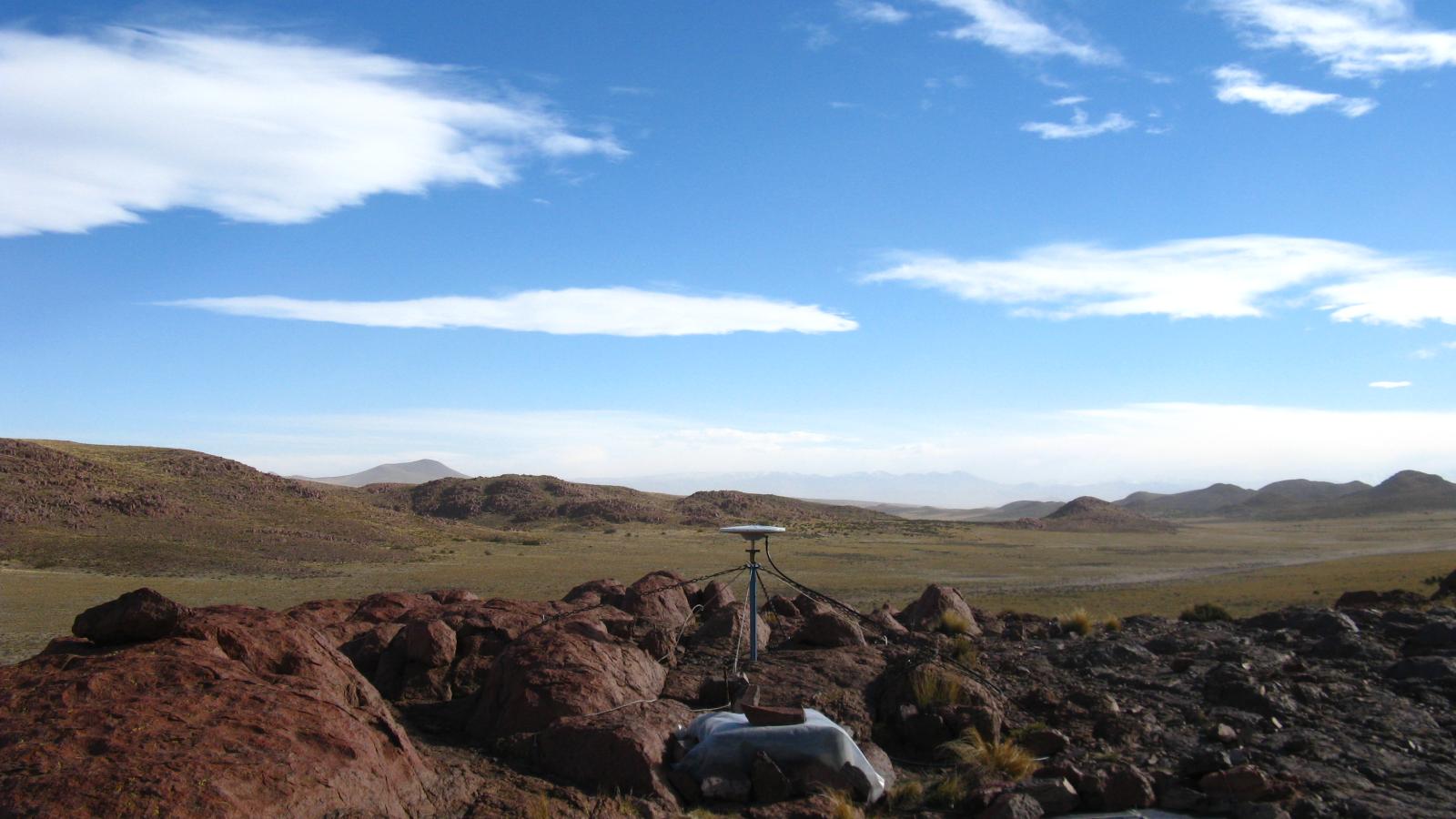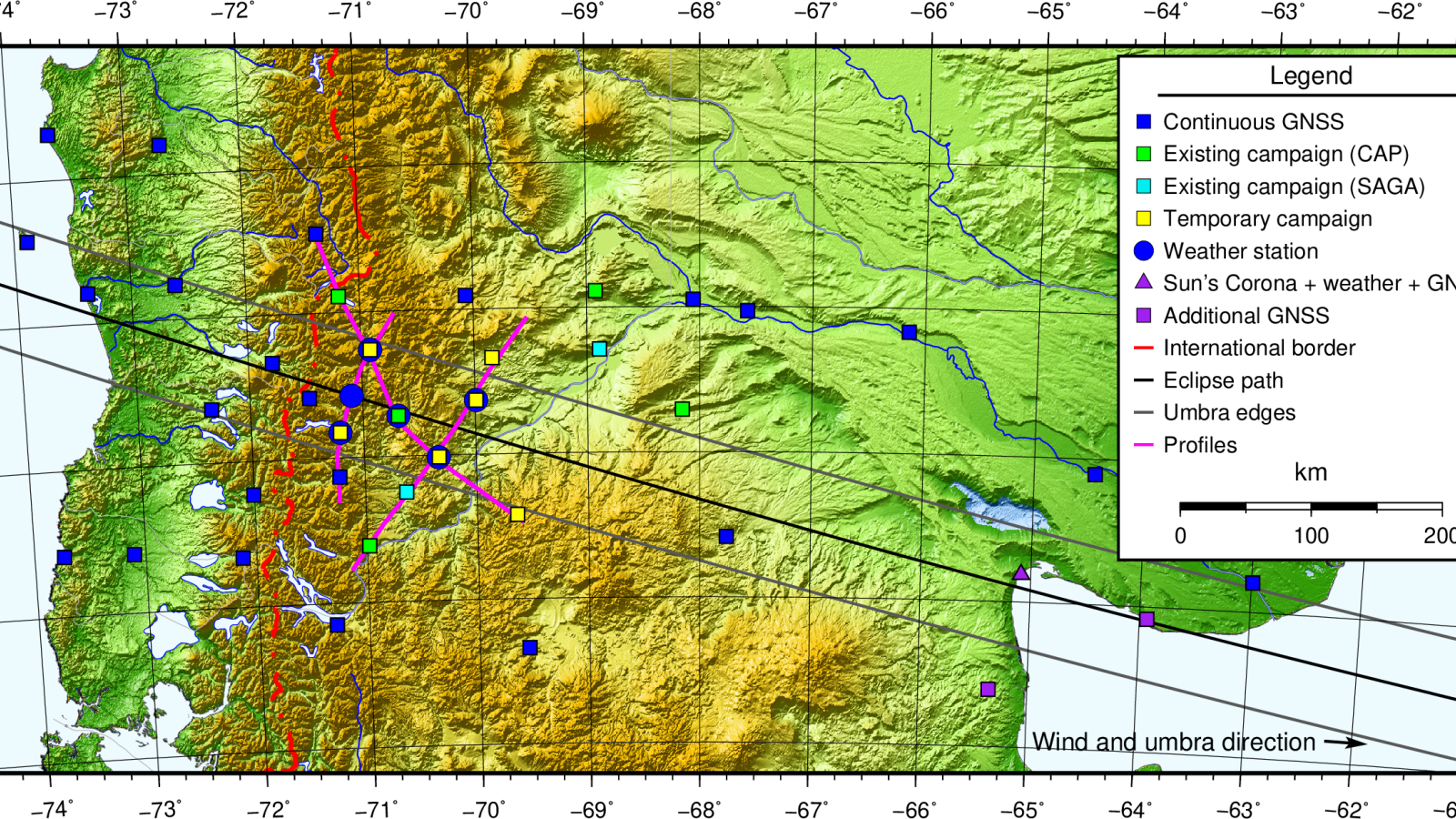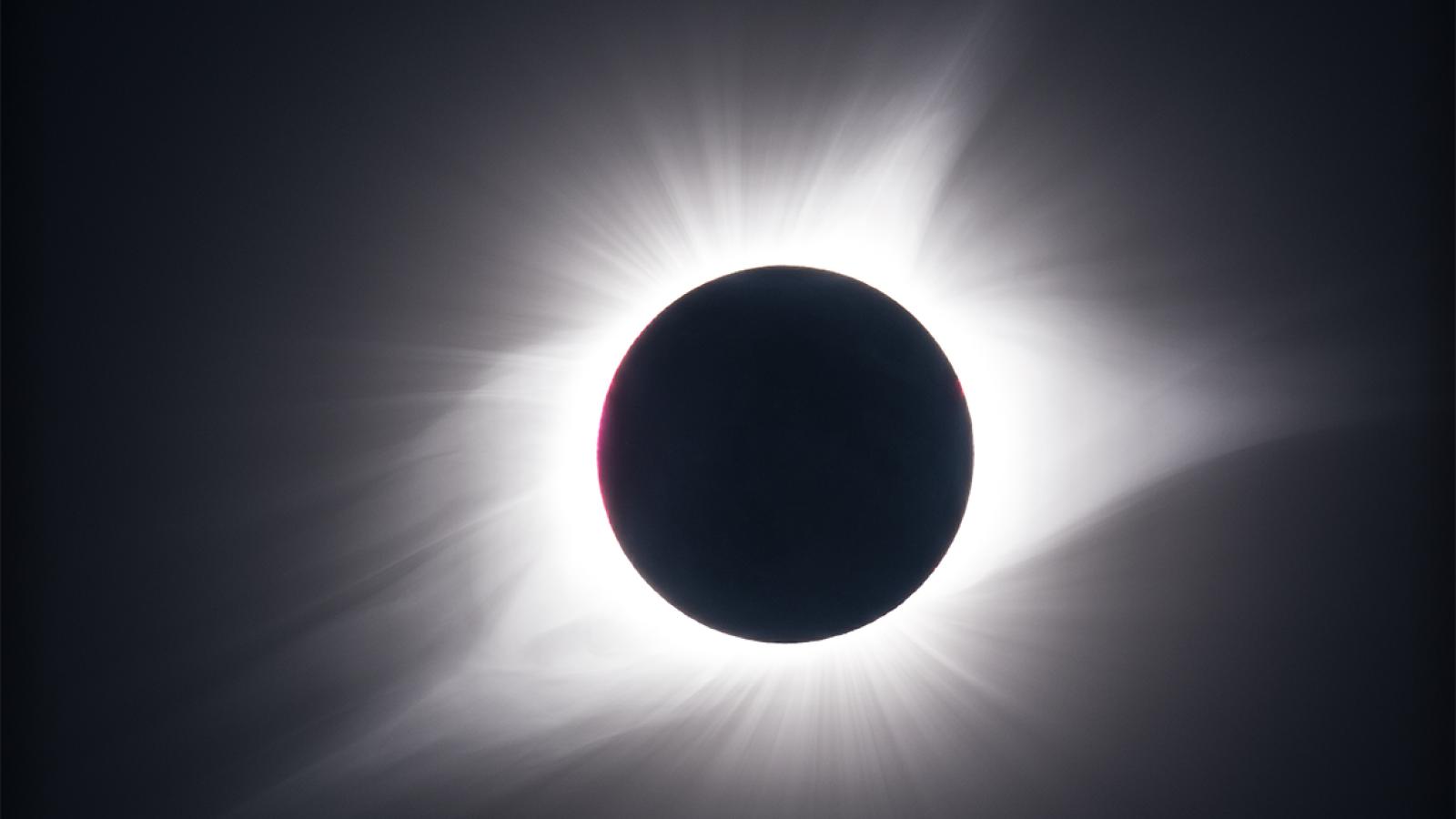Professor Demián Gomez Gears Up for December 2020 Fieldwork to Document a Once-in-A-Career Eclipse
On December 14, 2020 a total solar eclipse will occur in Chile and Argentina, a unique event that will not happen again for ~30 years. The eclipse will cross the Andes Mountains generating atmospheric disturbances from the troposphere to the ionosphere. Assistant Professor Demián Gómez has been awarded an NSF grant to deploy 13 GPS stations and 6 weather stations (see map and example field site in slideshow) to study the eclipse perturbations in the lower and upper atmosphere. The weather stations will provide information about temperature and wind changes during the eclipse, while the GPS stations will capture data about ionospheric changes in the upper atmosphere. The stations will be deployed throughout a large territory (~15,000 mi²) near the Andes Cordillera in southern Argentina. Two graduate students in Geodetic Science, Mara Figueroa and Franco Sobrero, will participate in the project, deploying equipment during the campaign and analyzing the resulting data. The COVID-19 pandemic has introduced many challenges, but the team is moving forward with this important project, taking every possible measure to ensure that all members remain safe during field activities.



